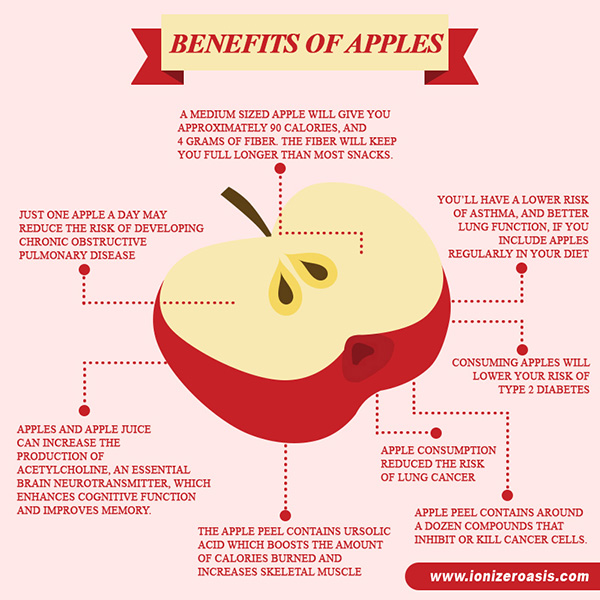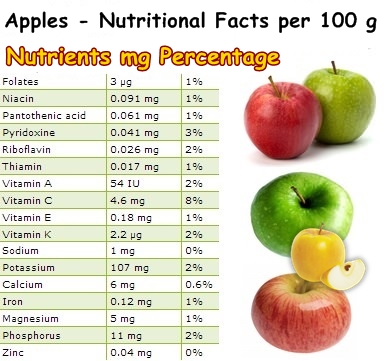Apples
Eve ate one, Steve made one and Newton was hit by one. This beautifully simple fruit is even known to keep the doctor away, but does its deserve such recognition?
The list of health benefits from the humble apple is extensive and growing all the time. Top benefits include reduced cancer risk, heart health and immune support, the many benefits include:
Health benefits
Prevention of dementia
Reduce cholesterol levels
Reduce lung and colon risk
Help with weight control
Improves circulation
Helps to maintain blood sugar levels
Anti-oxidants
Anti-inflammatory
Cardiovascular benefits
Apples are a rich source of polyphenols , these function as an antioxidant, helping to reduce the risk of artherosclerosis and other cardiovascular problems by decreasing oxidation of cell membrane fats.
Blood sugar regulation
Apples are known to help with blood sugar regulation and therefore an ideal fruit for people diagnosed with diabetes. The theory behind this regulation is that it carbohydrate digestion is slowed down, digestive enzymes are inhibited preventing carbohydrates from being so readily broken down into simple sugars.
Anti-cancer benefits
There are a few cancers that really stand out as being affected by apples. These are colon, breast and lung cancer, while it is not fully understood how there are such health benefits from apples; there is a likelihood that this is linked to the anti-inflammatory and antioxidant properties.
Asthma
Anti-asthma benefits are directly correlated to the apples antioxidant and anti-inflammatory nutrients, in addition a protective effect may be due to the apples phytochemical content, including flavonoids and other compounds.
What about the vitamins and minerals?
Lets look at some of these vitamins and minerals a bit closer.
Vitamin A
- Maintains normal skin function
- Maintains healthy vision
- Promotes a healthy functioning immune system
- Maintains neurological function
- Reduces inflammation, through fighting free radical damage
Vitamin C
- Supports the immune system
- Increases iron absorption
- Protects cells from oxidating damage
- Helps reduce the risk of heart disease, including coronary heart disease and stroke
- Helps in the formation of collagen, carnitine and catecholamines.
Vitamin E
- Antioxidant - Protects cells from damage
- Supports a healthy immune system
- Helps regulate blood pressure
- Aids in the repair of muscles and skin damage
- Slows down the ageing process
- Balances cholesterol
- Balances hormones
- Thickens hair
- Improves vision
- Slows down the decline of Alzheimer's disease
Potassium - mineral
- Supports a healthy nervous system
- Helps to maintain normal blood pressure
- Maintains a healthy kidney function
- Regulates fluid balance
- Lowers the risk of cardiovascular disease
- Helps to improve bone and muscle health
- Helps reduce anxiety
Magnesium - mineral
- Helps protein synthesis
- Supports the nervous system
- Improves cellular metabolism
- Regulates heart rhythm
- Reduces the risk of osteoporosis
- Reduces eclamptic seizures
- Helps with muscle relaxation
- Assists with bone and teeth formation
- Regulates the body's use of calcium and other minerals
- Helps maintain structural health of cell membranes
- Reduces the risk of type two diabetes
- Reduces the symptoms of asthma






 Organically Pure
Organically Pure 
 Reply With Quote
Reply With Quote


